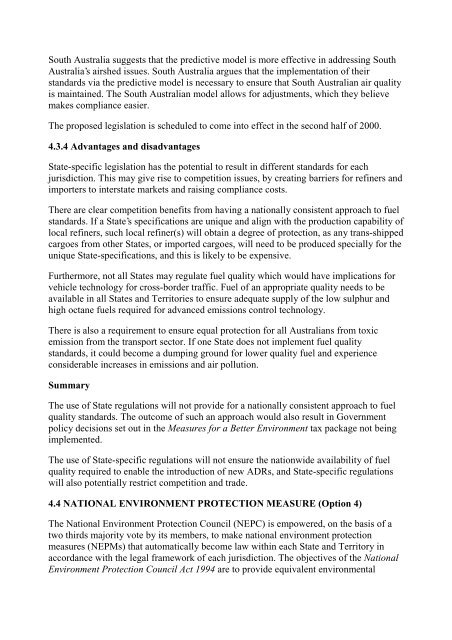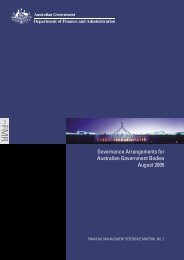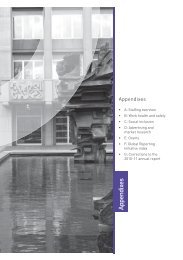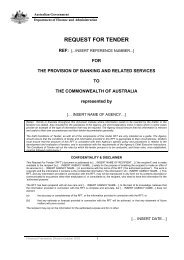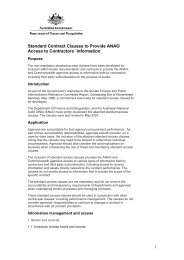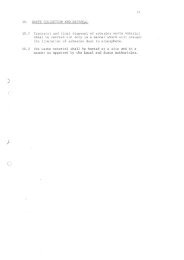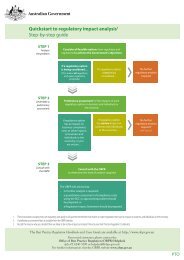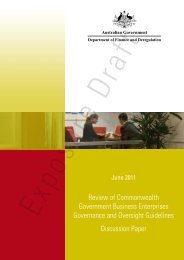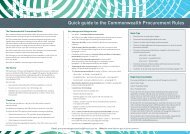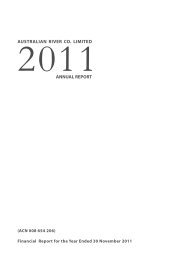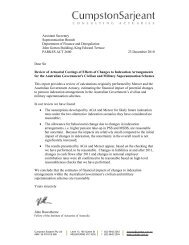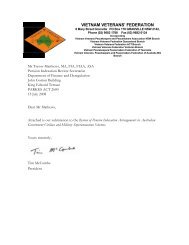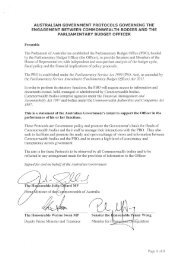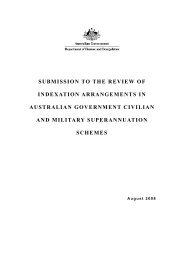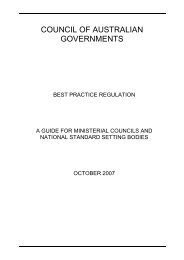National Fuel Quality Standards Regulation Impact Statement 1 ...
National Fuel Quality Standards Regulation Impact Statement 1 ...
National Fuel Quality Standards Regulation Impact Statement 1 ...
You also want an ePaper? Increase the reach of your titles
YUMPU automatically turns print PDFs into web optimized ePapers that Google loves.
South Australia suggests that the predictive model is more effective in addressing South<br />
Australia’s airshed issues. South Australia argues that the implementation of their<br />
standards via the predictive model is necessary to ensure that South Australian air quality<br />
is maintained. The South Australian model allows for adjustments, which they believe<br />
makes compliance easier.<br />
The proposed legislation is scheduled to come into effect in the second half of 2000.<br />
4.3.4 Advantages and disadvantages<br />
State-specific legislation has the potential to result in different standards for each<br />
jurisdiction. This may give rise to competition issues, by creating barriers for refiners and<br />
importers to interstate markets and raising compliance costs.<br />
There are clear competition benefits from having a nationally consistent approach to fuel<br />
standards. If a State’s specifications are unique and align with the production capability of<br />
local refiners, such local refiner(s) will obtain a degree of protection, as any trans-shipped<br />
cargoes from other States, or imported cargoes, will need to be produced specially for the<br />
unique State-specifications, and this is likely to be expensive.<br />
Furthermore, not all States may regulate fuel quality which would have implications for<br />
vehicle technology for cross-border traffic. <strong>Fuel</strong> of an appropriate quality needs to be<br />
available in all States and Territories to ensure adequate supply of the low sulphur and<br />
high octane fuels required for advanced emissions control technology.<br />
There is also a requirement to ensure equal protection for all Australians from toxic<br />
emission from the transport sector. If one State does not implement fuel quality<br />
standards, it could become a dumping ground for lower quality fuel and experience<br />
considerable increases in emissions and air pollution.<br />
Summary<br />
The use of State regulations will not provide for a nationally consistent approach to fuel<br />
quality standards. The outcome of such an approach would also result in Government<br />
policy decisions set out in the Measures for a Better Environment tax package not being<br />
implemented.<br />
The use of State-specific regulations will not ensure the nationwide availability of fuel<br />
quality required to enable the introduction of new ADRs, and State-specific regulations<br />
will also potentially restrict competition and trade.<br />
4.4 NATIONAL ENVIRONMENT PROTECTION MEASURE (Option 4)<br />
The <strong>National</strong> Environment Protection Council (NEPC) is empowered, on the basis of a<br />
two thirds majority vote by its members, to make national environment protection<br />
measures (NEPMs) that automatically become law within each State and Territory in<br />
accordance with the legal framework of each jurisdiction. The objectives of the <strong>National</strong><br />
Environment Protection Council Act 1994 are to provide equivalent environmental


